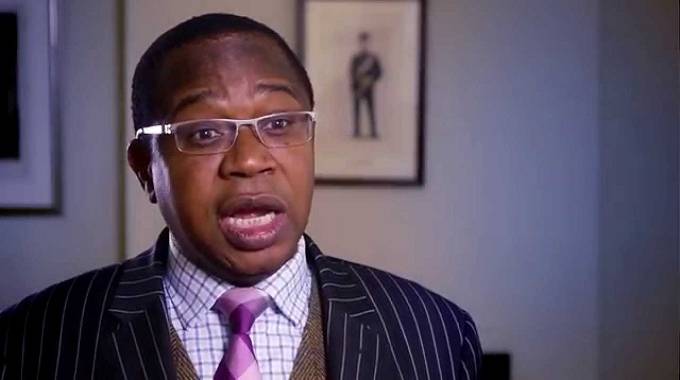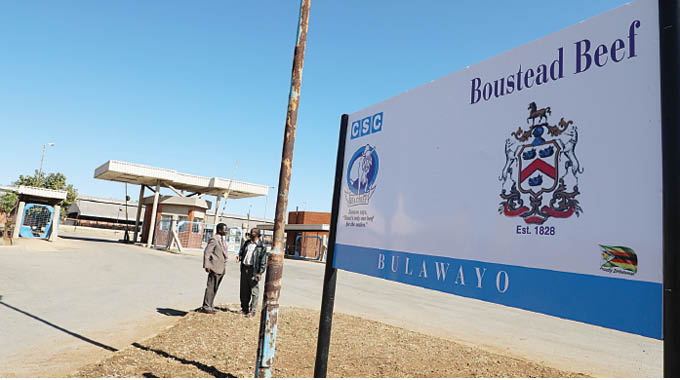Minister to present $28,5 billion budget

Africa Moyo, Harare Bureau
FINANCE and Economic Development Minister Professor Mthuli Ncube is set to present the 2020 national Budget on Thursday, with industry and citizens expecting better economic fortunes following the numerous challenges experienced since the launch of austerity measures.
The 2020 Budget is expected to be about $28,5 billion, which could be revised upwards by a factor of above 30 percent in view of inflation.
This requires Prof Ncube to make a serious balancing act to cater for the expectations of the nation.
Both President Mnangagwa and Prof Ncube have hinted that Zimbabwe was now moving out of austerity, and galloping towards economic growth driven by increased production and the Budget is expected to announce several measures that promote industry and agriculture.
Our Harare Bureau understands that the Budget will not announce any measures that will shock the market, but those that seek to grow industrial capacity and safety nets to cater for the vulnerable.
Measures aimed at addressing the high transport costs will continue with more Zupco buses set to arrive from South Africa, Belarus and China, while more kombis will be co-opted into the mass urban transportation strategy.
The Budget is expected to announce measures that ensure the objectives of Transitional Stabilisation Programme (TSP), Zimbabwe National Industrial Development Policy and Local Content Strategy, are met.
Some of the measures include provision lines of credit through credit guarantees, venture capital and tax incentives, to boost operations and accelerate job creation, and help in the attainment of Vision 2030 of an upper middle income economy.
The Industrial Development Corporation (IDC) is also set to be capacitated so that selected strategic industries are nurtured.
Confederation of Zimbabwe Industries (CZI) president Mr Henry Ruzvidzo last week said industrialists expect measures that will stimulate capacity utilisation.
Mr Ruzvidzo also wants Government to pace up the construction of the Harare-Beitbridge highway, which is seen as critical in the transportation of goods.
He said the observation by the Monetary Policy Committee (MPC) that fundamentals for economic growth were now in place, “is a profound” because it shows there is light at the end of the tunnel.
“As industry, capacity utilisation is below 40 percent, probably in the lower 30s. Depending on what we do from here going forward, it is a huge opportunity of growing the economy from because if we only take that capacity utilisation up to 70 percent, up to 80 percent; very quickly we have the economy responding,” Mr Ruzvidzo told the Economic Development and Financial indaba on Thursday.
“So in the budget, we expect measures that will induce utilisation of that idle capacity. These may include reduction of the tax burden; I think the position of the CZI on the 2 percent intermediated transfer tax is well known, we have lobbied (and) hopefully the minister will come up with some measures that address our concerns.”
However, Prof Ncube has said the 2 percent tax will stay since it has helped Government to raise funds for infrastructure development and payment of salaries for about 3 000 teachers recruited this year, among others.
Industry also wants the Budget to address the “regulatory burden”, which sees investors contending with numerous laws from company formation, to production and exportation.
Prof Ncube has said the issue of too many laws will be addressed under the auspices of the ease of doing business reforms.
Mr Ruzvidzo said industry wants measures that improve market access through discouraging importation of products that can be produced locally, a move that also saves forex.
Industrialists and employees also expect the Budget to pay attention to economic enablers, especially electricity and water, which have constrained operations.
Erratic electricity and fuel supplies have seen some companies scaling down and employees were rotation, which affects their earnings.
Employees also want the Budget to expand the tax-free threshold to about $3 000 from $700, to give them more disposable income.
Economic commentator Mr Langton Mabhanga expects the Budget to have measures that promote “high productivity”, pro-youth economic programmes, a jobs creation strategy and a strategy to transform the health sector. “The minister (Prof Ncube) must also lift the nation’s spirit by profiling the yield of austerity measures, including price and currency stability, road to single digit inflation.”
Mr Mabhanga also wants Prof Ncube to protect Fidelity Printers and Refiners (FPR)’s schemes from being turned into avenues that “prop the gold black market”.











Comments